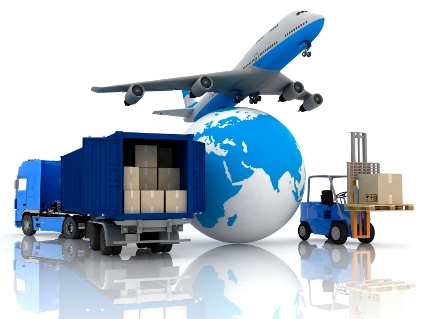During the past 38 years, our consultancy has formulated and implemented logistics solutions for scores of manufacturers, distributors, and logistics service providers. Along with successful Shipper-3PL associations, we have as well observed dreadful relationships that were characterized by cost overruns, plummeting service levels, and inadequate service equipment. Even worse, effected shippers were often unable to terminate or amend their 3PL contracts to escape the ongoing calamity. Failures have typically been triggered by:
- Inadequate contracting
- Unfeasible commitments
- Cultural conflict
- Incompetence or inability of one or both parties to perform within agreed terms
- Poor metrics, and absence of realistic “opt out” provisions within the relationship
What is a 3PL
During the past 25 years, the concept of outsourcing some or all one’s logistics functions to Third-Party Logistics Providers (3PLs) has gained broad acceptance. Correspondingly, over the same period, there has been robust growth in the number and scope of 3PL service providers. But, anyone with a truck or a warehouse is subject to declaring themselves to be a 3PL! Simply offering logistics services, or having ownership of or access to logistics resources does not of its own virtue make an organization a 3PL, but rather – simply - a logistics service provider. Indeed, all 3PL’s must be logistics service providers, but not all logistics service providers are in fact 3PL’s. A 3PL is differentiated from a for-hire logistics service provider by the degree to which it is integrated with its client’s business. A 3PL essentially assumes responsibility for the logistics business function(s) for which it has been contracted. Even dedicated service relationships do not necessarily manage organizational functionality, but rather, service a specific logistics need. Generally accepted beliefs suggest that a 3PL services it’s customer within the terms of a long-term contract; but that need not be. Typically, 3PLs service their customers within the parameters of a service agreement between the parties. There are three basic 3PL forms:
- Asset based: Services are provided using resident logistics assets and technologies
- Non-asset based: Services are provided by external resources, and often, technologies under management of the non-asset based 3PL; and
- Both asset and non-asset based: Services are provided by both resident and contracted logistics assets and organizations, all under 3PL direction.
What services do 3PL’s offer?
- Transportation/Fleet Management
- Logistics Technologies
- Traffic and Shipping
- Small Package Processing/Shipping
- Inventory Planning and Management
- Carrier Qualification and Selection
- Labeling and Benchwork
- Importing/Exporting; Customs/Duties
- Warehousing and Distribution
- Freight Bill Auditing
- Packing and Crating
- Packaging
- Assembly and Benchwork
- Routing and Scheduling
- Shipment Consolidation, Cross Docking, Flow Distribution
- Demand Forecasting; Demand Management
- Procurement; Inbound Logistics
- Reverse Logistics
- Supply Chain Planning/Management
- Production Scheduling
What are the prospective benefits of engaging a 3PL?
There is a plethora of prospective benefits for a manufacturer or distributor to engage 3PL’s to service logistics functions of their businesses, each of which have certain associated risks. 3PLs:
- Reduce the need to otherwise maintain robust logistics staff and infrastructure.
- May eliminate the need to secure and operate one’s own logistics assets.
- Can often integrate its customer’s operations into existing logistics networks that contain costs thru enhanced asset utilization.
- Have resident expertise to optimize relationships with other logistics service providers.
- Engage technologies and reporting formats that enhance logistics decision making, and optimize the application of logistics assets.
- Have logistics staff that can analyze operations and then recommend near term and longer range logistics solutions.
What are the prospective disadvantages or risks of engaging a 3PL?
- 3PL’s are often biased and self-serving, and likely to recommend solutions that engage their organizations and resources.
- 3PLs are not likely to recommend technology that is outside of their practice, and more likely to “fit” their customers operations into existing paradigms.
- 3PL operations staff’s that may be dedicated to delivering logistics services are less likely to have the intellectual agility as do those selling services at an executive level. As concerning, those operations staffs are not likely to be readily visible to 3PL customers during the sales cycle.
- 3PL’s will negotiate with a bias toward enhancing their profitability.
- Finding, qualifying, and sourcing for 3PLs requires expertise specific to those tasks.
- Oversight of 3PL operations requires ready capabilities that may well be beyond those otherwise needed to execute one’s own logistics operations.
Should you consider a 3PL?
The decision of whether to engage one or more 3PL’s should be taken very seriously. A manufacturer or distributor must first determine what needs to be improved before considering outsourcing. The right decision must be based on the:
- Current and anticipated logistics needs of a business;
- Organization’s resident logistics capabilities and its’ financial condition;
- Timely availability of cost effective and suitable 3PL’s; and
- Organization’s ability to measure and administer an engaged 3PL. Awareness of “state of the art” logistics options is as important as understanding the specifics of 3PL customized logistics solutions, if relevant.
The contract between 3PLs and their customers should be a meticulously crafted document that defines customer needs, and the 3PLs responsibilities to service those needs. Those executives negotiating service and financial terms must have the business maturity and organizational breadth to integrate both 3PL and its customer into a feasible relationship. Inadequate diligence, insight, or planning will lead to relationship shortfalls, if not outright failure.
Conclusion
Contracting with a 3PL will not eliminate the headaches inherent in conducting one’s own logistics operations, nor is it necessarily a pathway to reducing or containing logistics costs. Successfully building and then managing 3PL relationships often demands the prerequisite enhancement of organizational skills and processes.
Pivot Toward the Future
Business growth is dependent on the shift from primary reliance on past knowledge and aging practices, to a forward-facing perspective with a clear view of evolving business environment and best-practices aligned with conditions in today’s marketplace.


